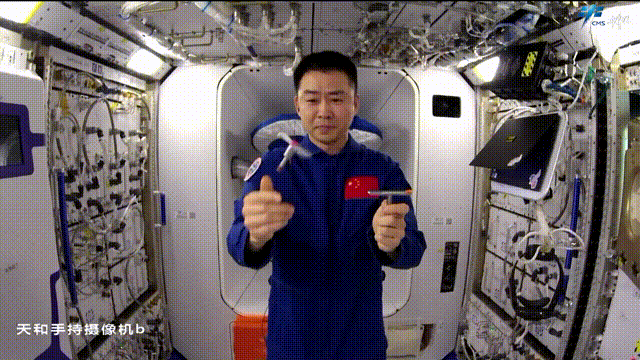
Shenzhou-14 taikonaut Chen Dong spins two T-handles and shows how they "dance" in microgravity during a livestreamed science class from the Wentian lab module of China's space station, October 12, 2022. /CMSA
Shenzhou-14 taikonaut Chen Dong spins two T-handles and shows how they "dance" in microgravity during a livestreamed science class from the Wentian lab module of China's space station, October 12, 2022. /CMSA
China livestreamed the first science class from the Wentian lab module of its space station on Wednesday.
It's the third lecture of the "Tiangong Class," a series of educational sessions given by taikonauts from China's space station. This time, the class was delivered by the Shenzhou-14 crew members – Chen Dong, Liu Yang and Cai Xuzhe, who were sent to the space station on June 5 for a six-month mission.
Click here for CGTN's livestream of the class.
The lecture started at 4:01 p.m. (Beijing Time) and lasted about 50 minutes. About 400 primary and middle school students attended the class from four classrooms across China. The main classroom was at the Technology and Engineering Center for Space Utilization under the Chinese Academy of Sciences (CAS) in Beijing. The three others were in Heze City of east China's Shandong Province, Zhengzhou City of central China's Henan Province, and Dali City of southwest China's Yunnan Province.
"We hope that young students can see how the real ground systems of the China Manned Space Program work with the in-orbit system," said Zhang Lu, a researcher on space utilization at the CAS.
07:04
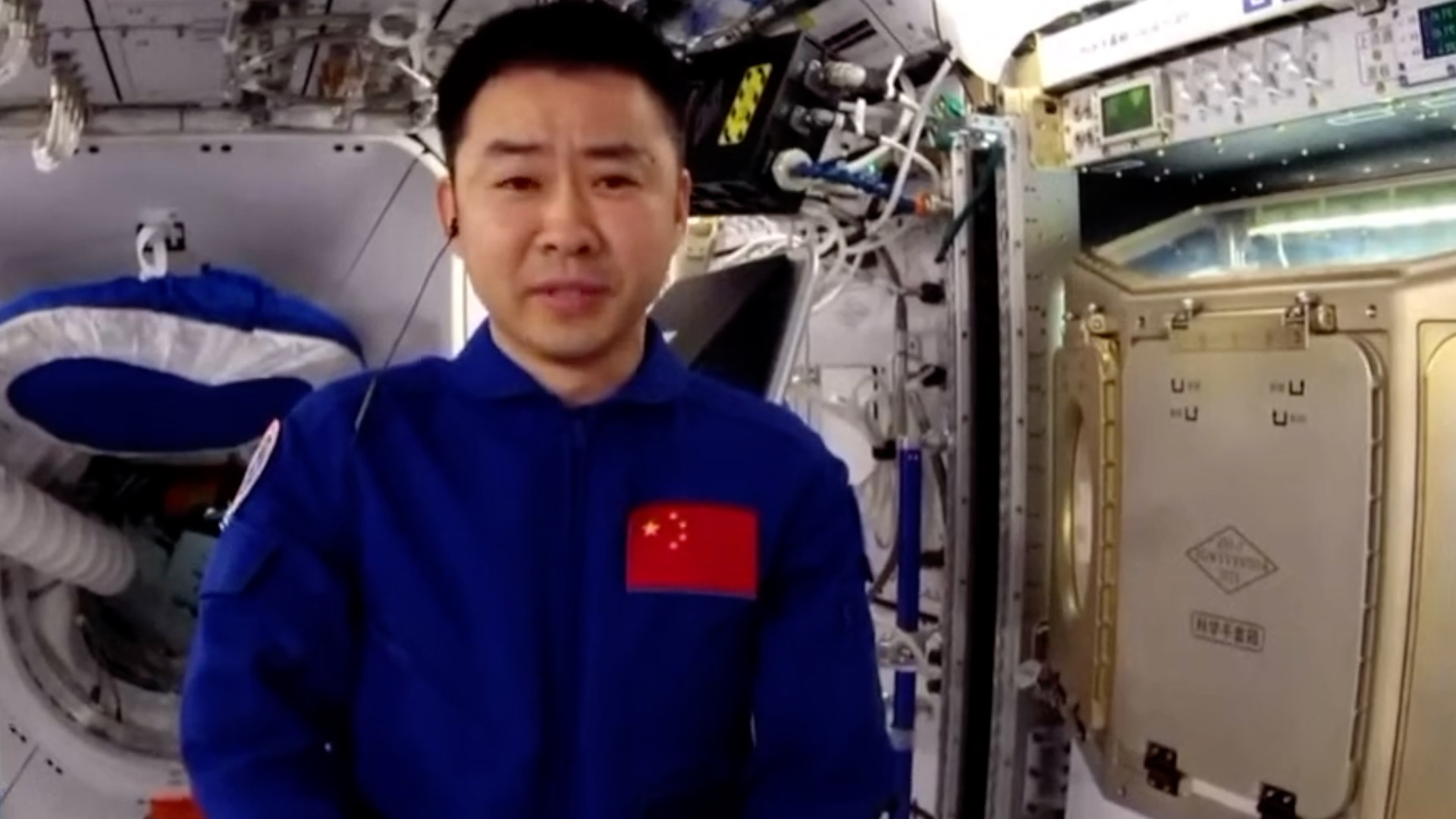
What's in the Wentian?
During the lecture, the Shenzhou-14 crew first showcased their living and working facilities in the Wentian lab module, which was launched in July as a key part of the space station.
Wentian, the first lab module of the space station, has living facilities for the taikonauts just like the Tianhe core module, including three bedrooms, a kitchen and a bathroom. It can control the entire space station, providing additional oversight for the safe operation of the space station.
As a lab module, it is equipped with four experiment cabinets, mainly for studies of space life sciences.
Fun experiments
After a tour of the Wentian, the crew demonstrated several interesting water-related phenomena in the microgravity environment, such as capillarity in space, drinking water from a 2-meter-long straw and how a water ball vibrates significantly less under external forces when a small steel ball is put inside it.
00:50
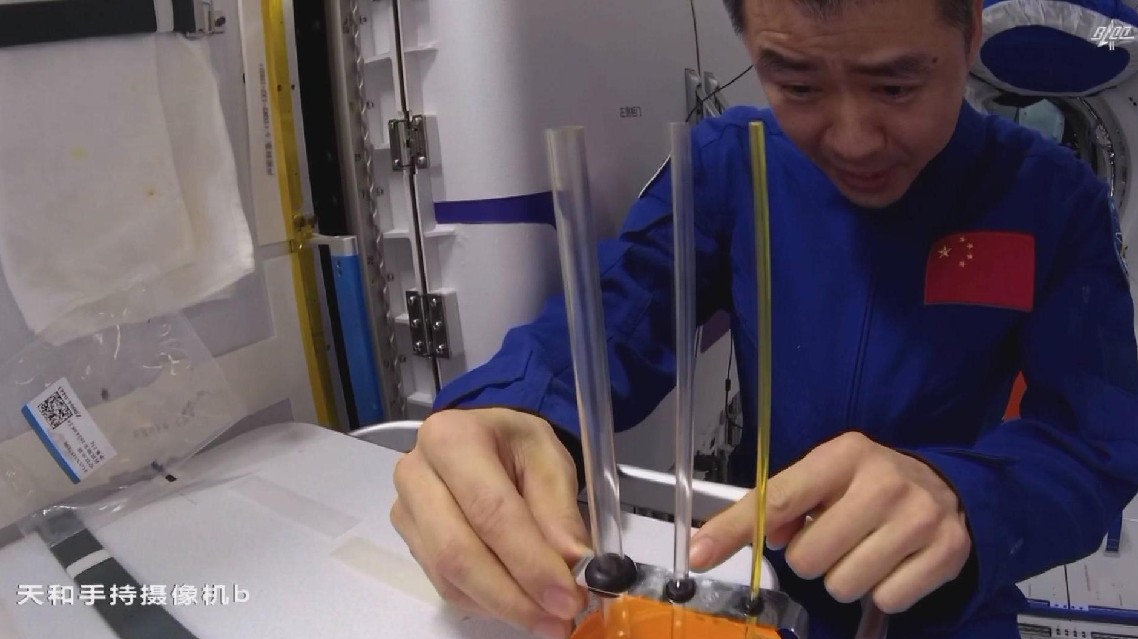
01:19
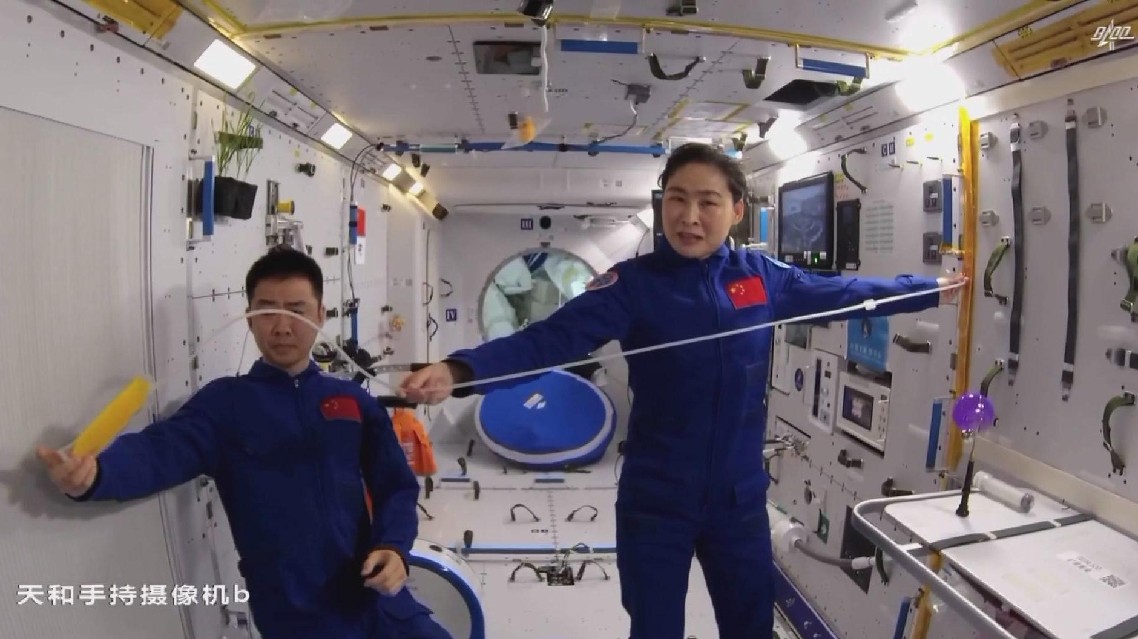
01:51
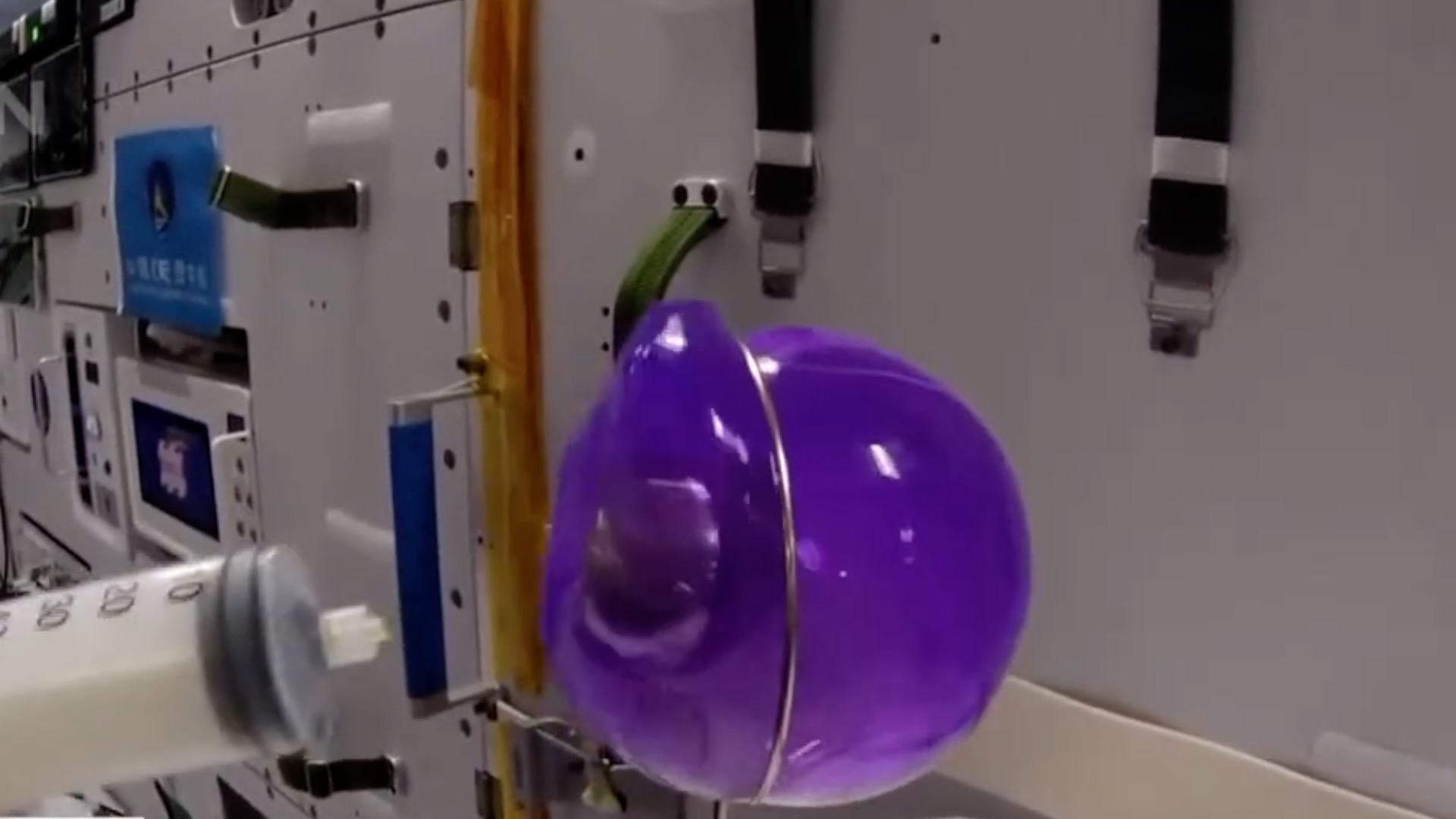
In another experiment, Chen spun two T-handles and showed how they "danced" in microgravity.
02:40
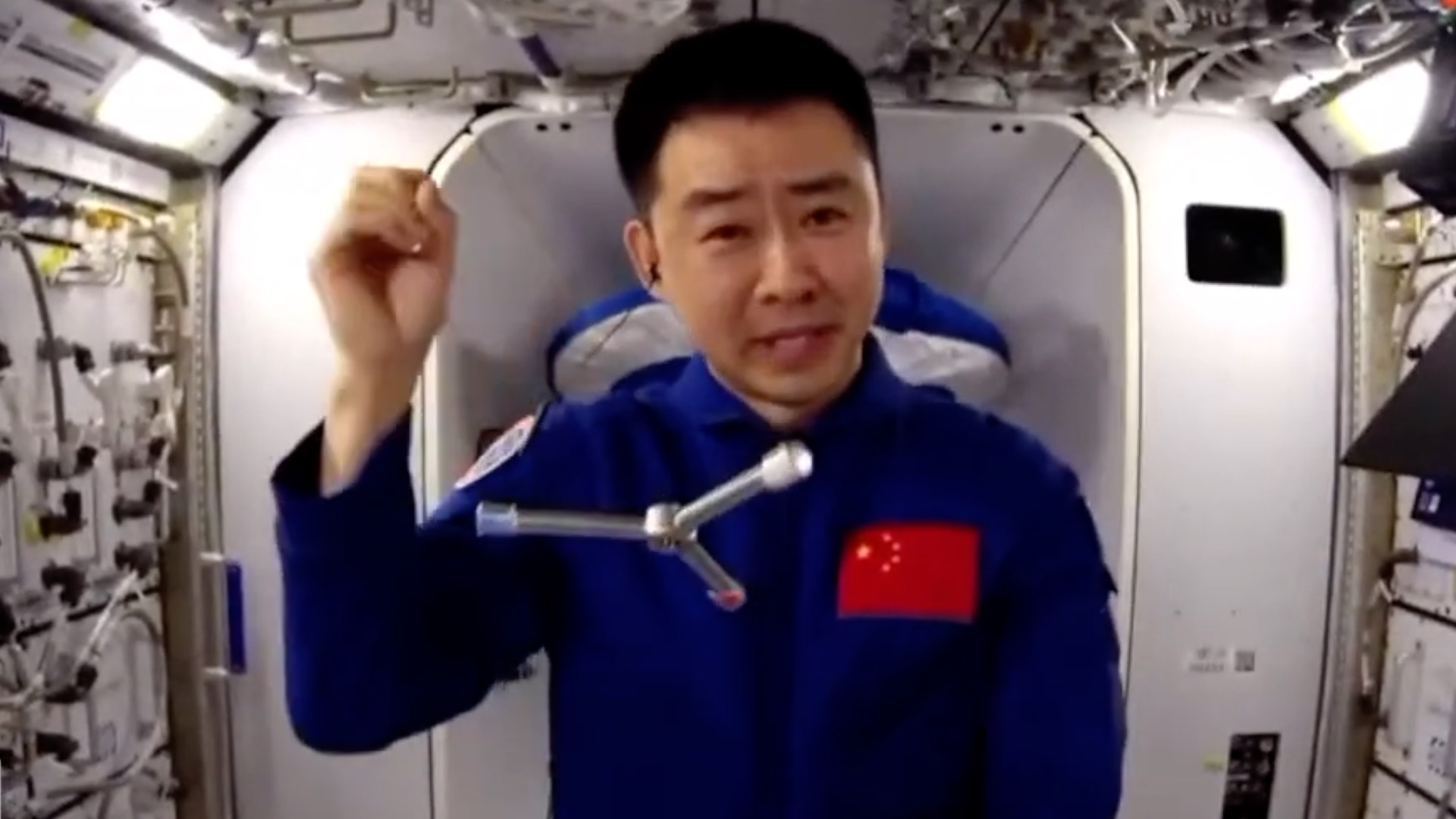
Growing plants in space
The Shenzhou-14 crew has been growing plants in the lab module, including lettuce, rice and Arabidopsis. The latter two are plants typically used in basic research.
03:47
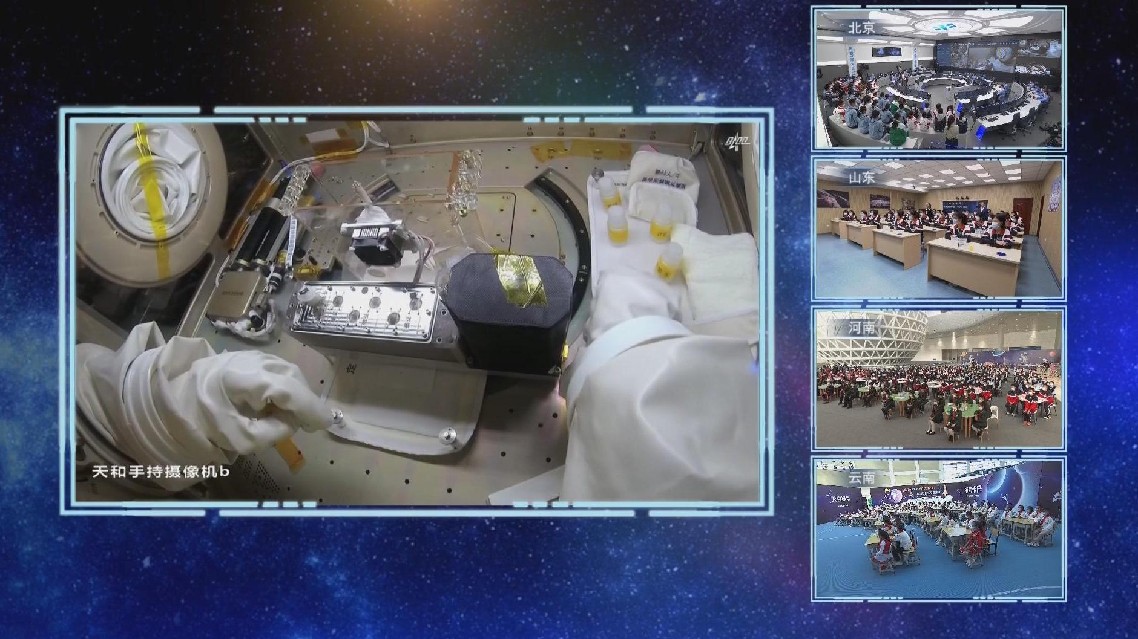
The taikonauts showcased the plants during the class.
Chen livestreamed the process of collecting the Arabidopsis sample grown in an experiment cabinet in the Wentian lab module.
"I believe if you stick to your dream, learn diligently and have good physical exercises, you will surely have the chance to join the honorable team of taikonauts," said Chen.
02:21
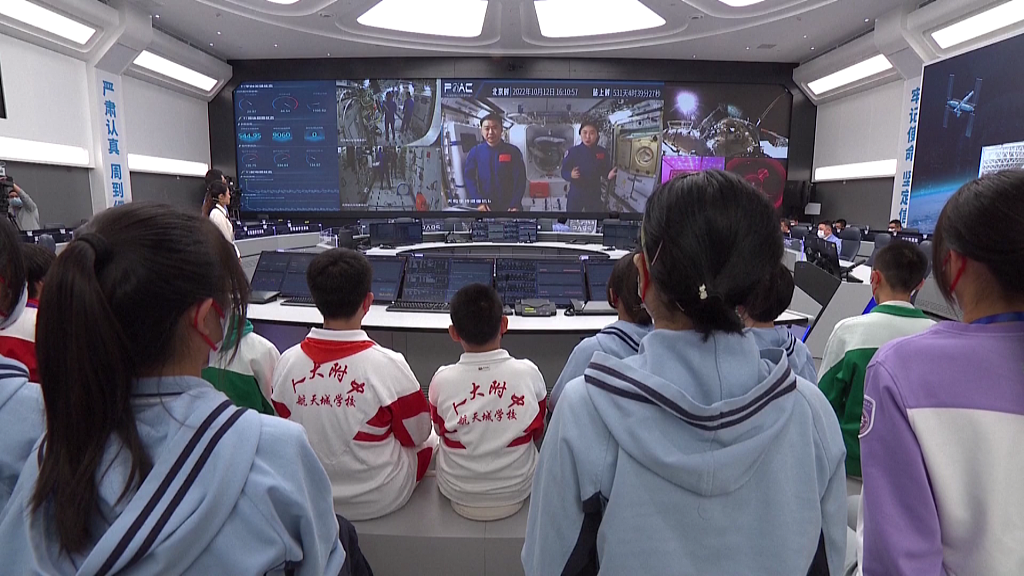
The taikonauts also answered questions from the students, who showed their excitement after the class.
"I am quite interested in growing seeds in space because it is really slow, and (the seeds) are small and easily affected by the environment. I am fascinated by the experiment there," said Chen Yiling from the Experimental School Affiliated to the CAS.
"I really want to go to space and find out its mysteries by doing interesting experiments. And if possible, (I want to) teach students on Earth. I think that's fabulous," said Xiong Liangyuan from Qiyuan Junior High School Affiliated to the CAS.
The previous two space science lectures were given by the Shenzhou-13 crew last December and this March from the Tianhe core module. The lectures are part of China's effort to take full advantage of the space station to inspire young minds to pursue science.
The Shenzhou-14 crew has spent over four months on the space station and conducted two spacewalks. They are expected to return to Earth in early December when the Shenzhou-15 crew will take over.